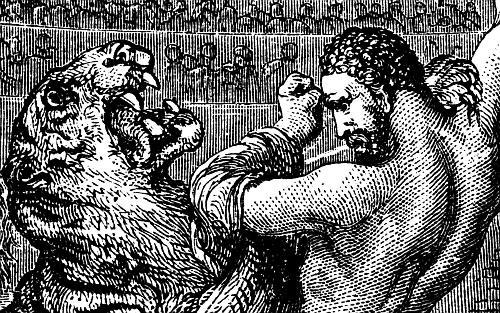Balanced Approach
 Monday, October 17, 2011 at 01:38PM
Monday, October 17, 2011 at 01:38PM  CAtennis
CAtennis Once again, maybe because of our high standard of living (and greater relative disposable income that other nations) or the pressure to "keep up with the Joneses" (or some other form of guilt) it seems that modern kids are forced into way too many weekly activities. Be it tennis, soccer, baseball, drama, street Jazz, music (singing and instruments), video games, school, play-dates, religious rituals and a dozen other endeavors, the children often do not have time to relax and properly reflect on their activities. The player may love tennis but his mind might not be on it 1 hour before the lesson or an hour following the lesson because, during those times, he is engaged in some other activities. The players race from place-to-place in some neurotic pursuit of excellence at all these activities. Often time, they become overwhelmed and burnt out with everything resulting in negative consequences such as drugs, resentfulness and other anti-social behavior. Parents often sign up the kids for all these activities in the pursuit of a balanced life. But is it?!

My advice would be to figure out EARLY whether the goal is to have little Johnny or Suzie become a "Jack of All Trades and Master of None" or an expert at one MAYBE two things. I'm all for being a well-rounded person, but if the goal is to be not just good but great, the parents and players must understand that there are only 24 hours in the day. With 8-9 hours of sleep, 8 hours of school, 4 hours of homework, a couple of hours of driving, eating and getting ready for school/athletics, the day doesn't hold enough hours to do EVERYTHING (and that's not even counting videogames or other relaxation activities).
Furthermore, the mind needs a certain time to "get in gear" in order to understand the concepts that the coach is seeking to impart. To ensure that he gets most out of the training, the player needs a good 30 minutes of mental preparation before every practice and, maybe, 15-20 minutes after the practice to reflect on the workout and absorb the information. When she is yanked around from activity to activity, the chances are that she will be thinking about school while she's doing tennis; thinking about tennis while she's doing music, thinking about music while she's doing homework; thinking about homework while ding drama; thinking about drama while playing soccer; and so on. It goes without saying that energy levels will also be diminished if appropriate breaks are not available.
In addition, it is important to understand that the US players are not just competing against themselves but also players from other countries; players from places where the emphasis is put on one activity (besides school) rather than 5-6. So while the US player practices one hour of soccer, one hour of tennis, one hour of music, etc. per day, a foreign player will play 3 hours of tennis (and maybe some soccer "for fun" - as a warm-up or wind-down activity). In a year, the foreign player will have at least 600 extra hours of tennis. After a couple of years, the average foreign player's level will be "off the charts" when compared to US players. So if you want to the child to stand out at SOMETHING, focus on that one thing and engage in the other activities for pleasure only. Don't let such activities (or other societal pressures) interfere with your success at tennis (if tennis is indeed a priority and not just another notch in your activities belt).




